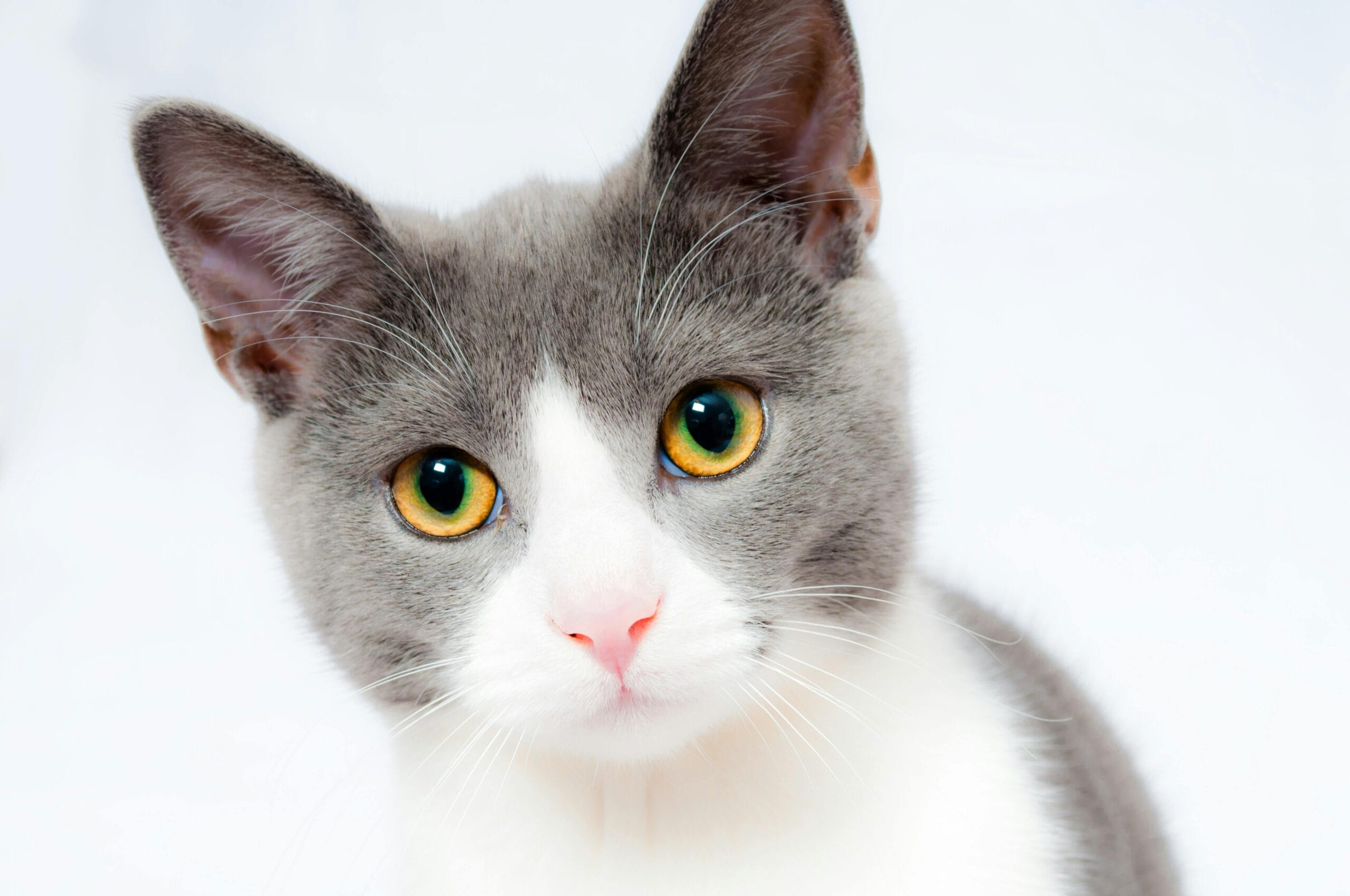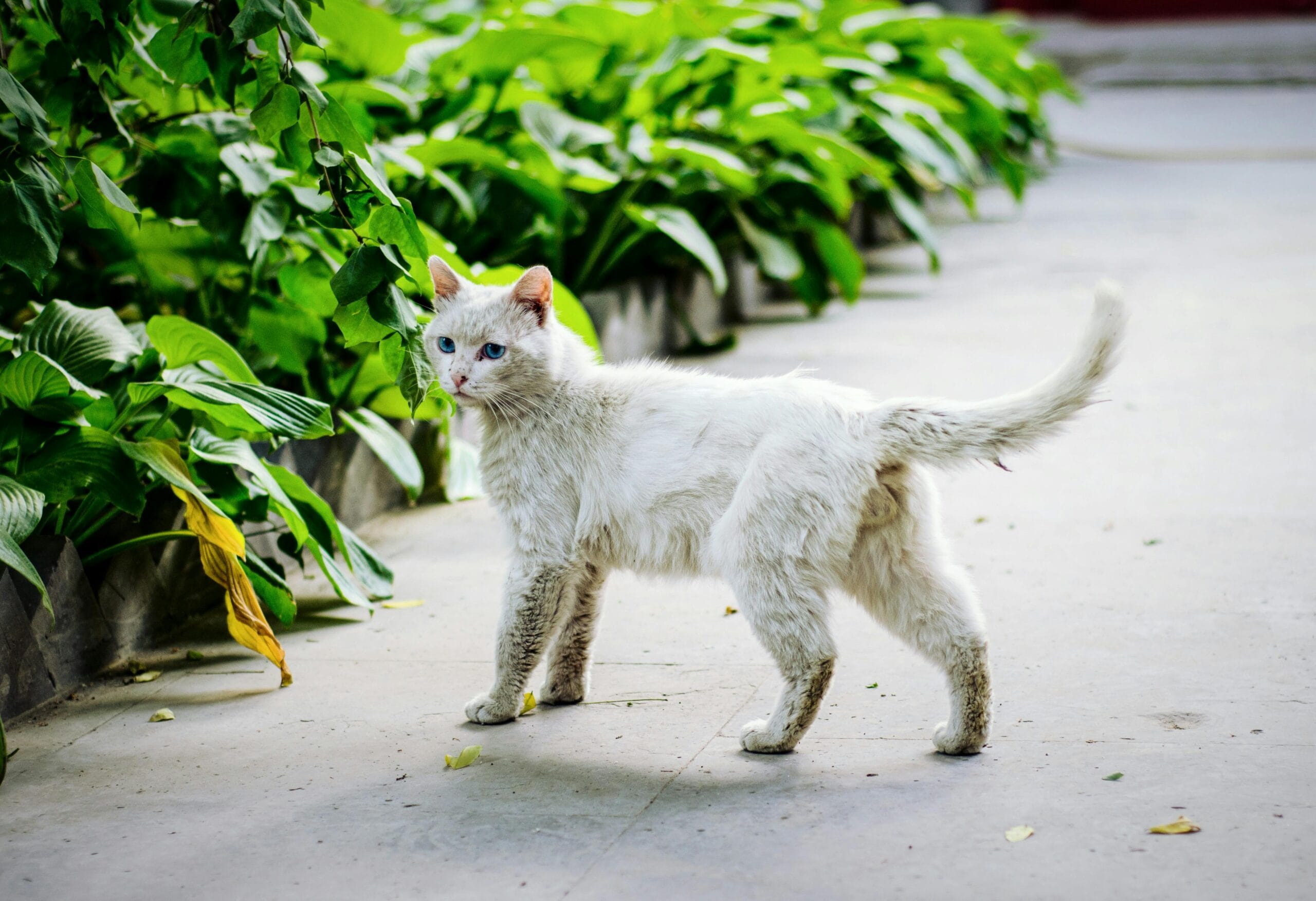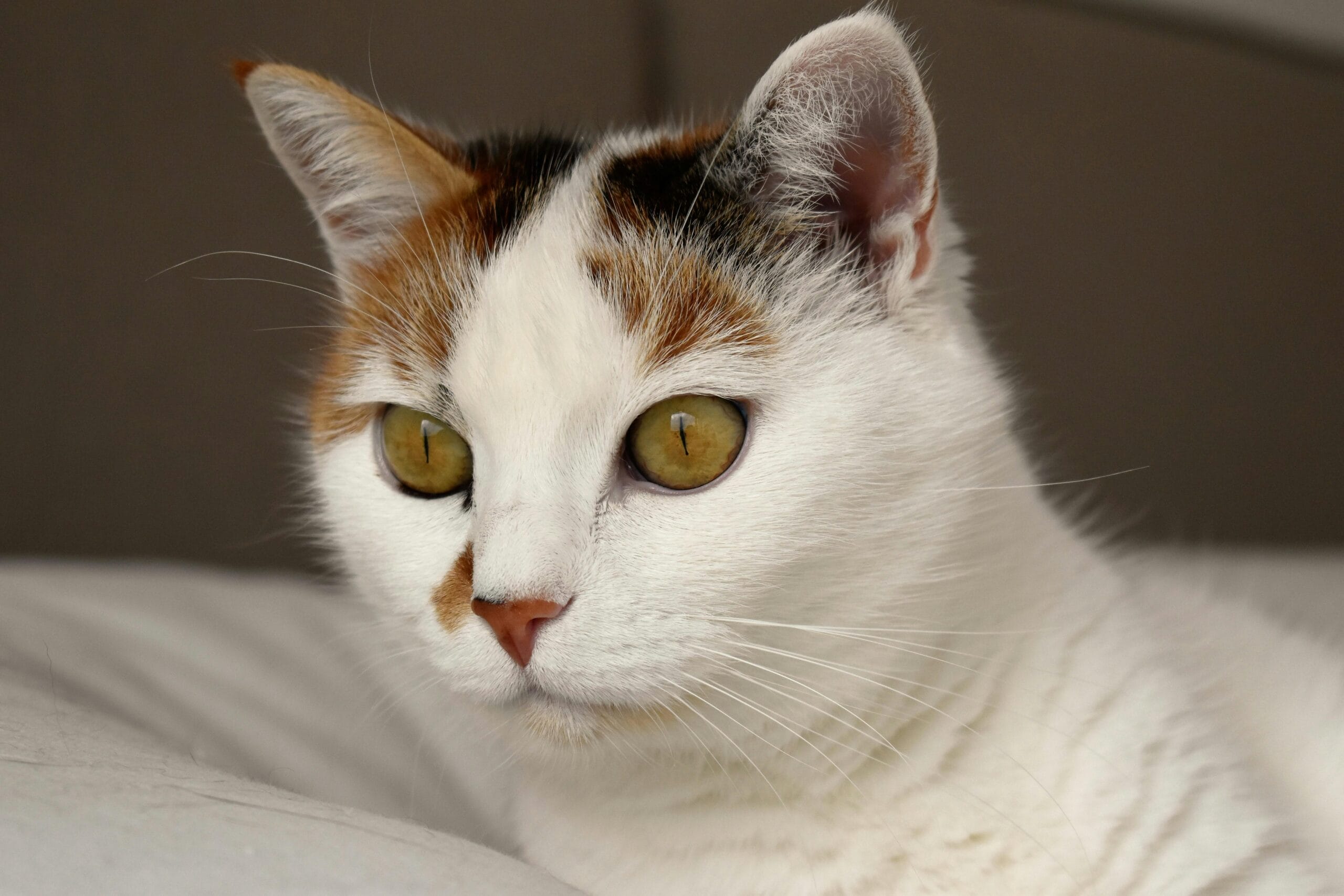Why Does My 4 Month Old Cat Purr So Much ?

Why Does My 4 Month Old Cat Purr So Much? Is your 4-month-old kitten purring constantly? Find out why excessive purring happens & what it means for your furry friend. Learn now! #cats #kitten #purring
Why Does My 4 Month Old Cat Purr So Much?
A purring kitten is a heartwarming sight, but when that purr becomes a constant hum, even for a 4-month-old, it can spark concern. This comprehensive guide addresses the question, “Why does my 4 month old cat purr so much?” exploring various reasons behind excessive purring in young felines. We’ll delve into the normal reasons, and when a constant purr might indicate a problem needing veterinary attention.
Understanding Kitten Purrs: More Than Just Happiness
While we often associate purring with contentment, it’s a complex vocalization with multiple meanings, especially in kittens. A 4 month old kitten excessive purring isn’t always a sign of pure joy. It can serve as a communication tool conveying a range of emotions and physical states. Think of it as a multifaceted language rather than a simple indicator of happiness.
Normal Reasons for Excessive Purring in 4-Month-Old Kittens
For a 4 month old kitten, several perfectly normal reasons explain a lot of purring. These include:
- Self-Soothing: Kittens, especially those separated from their mothers early, often purr to comfort themselves. It’s a self-regulating mechanism that helps them cope with stress or anxiety. This is very common and often seen as a positive sign of adjustment.
- Bonding and Communication: Purring is a key way kittens communicate with their caregivers. It reinforces the bond and signals contentment during interactions like cuddling, playing, and feeding.
- Pain Management: Surprisingly, kittens (and cats) may also purr when in pain or discomfort. The low-frequency vibrations produced during purring might have therapeutic effects, helping to alleviate pain and promote healing. This is a crucial point to remember, especially if the purring is accompanied by other symptoms.
- Seeking Attention: A persistent purr can be a way for your kitten to demand attention, food, or playtime. It’s their way of saying, “Hey, look at me!”
- Feeling Secure: The familiar sound of your kitten’s purr can be equally soothing for you and them. A constant purr can signify that they feel safe and secure in your presence and their environment.
When Constant Purring is a Cause for Concern: “Why is my cat purring constantly?”
While some purring is normal, a 4-month-old kitten excessive purring, especially if accompanied by other symptoms, could indicate an underlying health issue. It’s crucial to differentiate between normal and concerning purring. Consider these scenarios:
- Changes in Appetite or Behavior: If your kitten’s purring is coupled with changes in eating habits (increased or decreased appetite), lethargy, vomiting, diarrhea, or changes in litter box habits, it’s crucial to consult a veterinarian immediately. This could be a sign of an underlying illness.
- Other Symptoms: Observe your kitten carefully. Is there weight loss? Are they exhibiting any signs of pain when touched or moving? Do they seem more withdrawn or less playful than usual? Any of these symptoms alongside excessive purring necessitate a veterinary visit.
- Purring Intensity and Duration: While kittens naturally purr a lot, continuous, high-intensity purring can be concerning. Pay attention to the volume and duration of the purrs. If it seems abnormally loud or persistent even when your kitten is resting, schedule a checkup.
- Underlying Medical Conditions: Conditions such as hyperthyroidism (in rare cases, even in young cats), infections, or internal injuries can sometimes cause increased purring. A veterinarian can conduct the necessary tests to rule out any underlying medical conditions.
Differentiating Normal from Abnormal Purring
It can be challenging to distinguish between a contented purr and one indicating a problem. Look for clues beyond the purr itself. Does your kitten actively seek interaction while purring? Does it seem playful and energetic in between purrs? Or does the purring seem to accompany periods of lethargy, discomfort, or illness?
If you’re unsure, it’s always better to err on the side of caution. Consult a veterinarian to rule out any underlying health concerns. Early detection is key to effective treatment.
Seeking Veterinary Advice: Addressing “Why is my cat purring constantly?”
Your veterinarian is the best resource for determining the cause of your kitten’s excessive purring. They can perform a thorough physical examination, run diagnostic tests (such as blood work or X-rays if necessary), and accurately assess whether the purring is a normal behavior or a symptom of an underlying medical condition. Remember, preventing potential problems is easier than treating them. Don’t hesitate to contact your vet if you have any concerns about your kitten’s health.
For additional information on feline health and behavior, I highly recommend consulting the resources available at the American Veterinary Medical Association website. They provide extensive information on various aspects of cat care, ensuring you have access to credible and up-to-date details.
Understanding Your Kitten’s Body Language: Beyond the Purr
While the purr is a significant indicator, it’s only one piece of the puzzle. Pay attention to your kitten’s overall body language. Is its tail relaxed or puffed up? Are its ears forward or flattened? Is it showing signs of aggression or fear? Combined with the purr, these cues will offer a more comprehensive understanding of your kitten’s emotional and physical state. Understanding feline body language, in conjunction with the frequency and intensity of purring, helps you accurately gauge your kitten’s well-being.
The ASPCA website provides excellent resources on understanding cat behavior and body language. Their guides can significantly enhance your ability to interpret your cat’s signals. Learning to interpret these signals correctly helps you better address your kitten’s needs.
Nutritional Factors and Environmental Influences
Sometimes, non-medical factors can play a role in a kitten’s behavior, including excessive purring. Ensure your kitten receives a balanced diet appropriate for its age and breed. Nutritional deficiencies can sometimes affect behavior. Additionally, a stimulating and enriching environment can contribute to a happy and well-adjusted kitten, potentially reducing anxiety-related purring. This includes access to scratching posts, toys, and safe places to retreat for rest.
For detailed information on appropriate nutrition for kittens, consult your veterinarian or a certified veterinary nutritionist. A well-balanced diet is essential for a kitten’s physical and mental well-being. They can help you choose the right food for your kitten’s age, breed, and activity level.
Conclusion: A Holistic Approach to Understanding Your Purring Kitten
Addressing the question “Why does my 4 month old cat purr so much?” requires a holistic approach. While frequent purring in a 4-month-old kitten can be perfectly normal, particularly if the kitten appears happy and healthy, persistent or excessive purring warrants a visit to your veterinarian. By combining observation of your kitten’s behavior, consideration of environmental factors, and consultation with veterinary professionals, you can ensure your feline friend’s health and happiness. Remember, preventing potential issues is always the best approach.
Call to Action: Share Your Experiences!
Have you experienced excessive purring in your 4-month-old kitten? Share your experiences, concerns, and solutions in the comments section below. Let’s create a supportive community to help each other understand and address the mysteries of feline purrs, specifically tackling issues like why is my cat purring constantly or 4 month old kitten excessive purring. Your insights could be invaluable to other cat owners!

FAQ: Why Does My 4 Month Old Cat Purr So Much?
Q: Why does my 4-month-old kitten purr so much? Is it normal?
A: Yes, excessive purring in a 4-month-old kitten is often perfectly normal. Kittens purr frequently to self-soothe, express contentment, and communicate with their mothers and littermates. A 4 month old kitten is still very young and often purrs as a way to feel secure.Q: My 4-month-old kitten is purring constantly. Should I be worried?
A: Constant purring isn’t automatically a cause for concern, especially in a young kitten. However, if the purring is accompanied by other symptoms like lethargy, loss of appetite, or changes in litter box habits, consult a vet to rule out any underlying medical issues. This addresses ‘why is my cat purring constantly’.Q: My 4-month-old kitten purrs even when I’m not petting her. Why is this?
A: Kittens often purr to self-comfort. They might be purring to alleviate stress, boredom, or even mild discomfort. It’s a self-soothing mechanism.
Q: Is 4 month old kitten excessive purring a sign of illness?
A: While not usually a primary symptom, excessive purring combined with other signs (lethargy, vomiting, diarrhea, changes in urination/defecation) could indicate an underlying health problem. Consult your vet if you have concerns.Q: How can I tell if my kitten’s purring is a sign of happiness or distress?
A: It’s difficult to definitively distinguish happiness from distress solely through purring. Pay attention to other behaviors. Happy purring is usually accompanied by relaxed body posture, soft eyes, and playful behavior. Distress might involve hiding, avoidance, and other unusual symptoms.Q: My kitten purrs loudly. Is this normal for her age?
A: The volume of a kitten’s purr can vary. Loud purring is not automatically a cause for concern, but again, monitor for other symptoms.
Q: My kitten purrs even when she’s clearly in pain. Why?
A: Sometimes cats purr as a coping mechanism, even when injured or in pain. It’s thought to have pain-relieving effects. However, this does not negate the need for veterinary attention.Q: What should I do if I’m concerned about my 4-month-old kitten’s excessive purring?
A: Schedule a veterinary appointment. They can perform a thorough examination to rule out any underlying medical issues contributing to the excessive purring. This addresses ‘4 month old kitten excessive purring’.Q: My vet says my kitten’s purring is normal. Should I still be concerned?
A: While your vet’s assessment is reassuring, continue monitoring your kitten’s behavior and overall health. If you notice any changes or new symptoms, contact your vet immediately.
- Q: Will my kitten’s excessive purring eventually decrease as she gets older?
A: As kittens mature, their purring frequency might decrease. However, many adult cats continue to purr frequently, expressing contentment and comfort. The frequency of purring often depends on the cat’s personality and temperament.

Why Does My 4-Month-Old Kitten Purr So Much?
It’s adorable, isn’t it? That constant purring from your four-month-old kitten. But while often a sign of contentment, excessive purring can sometimes warrant attention. Let’s explore the reasons behind this behavior and when to consult a vet.
Common Reasons for Excessive Purring in Kittens:
Happiness and Contentment: This is the most frequent cause. Kittens purr when they feel safe, secure, loved, and well-fed. Stroking, playing, and cuddling often trigger purring.
Self-Soothing: Just like human babies, kittens use purring to self-soothe, especially when feeling stressed, anxious, or insecure. A new environment, loud noises, or being alone can lead to increased purring.
Pain Management: This is a crucial point. While counterintuitive, kittens may purr when in pain or discomfort. The vibrations from purring may have analgesic properties, helping to alleviate pain. This is why it’s essential to consider other symptoms.
Health Considerations and When to See a Vet:
While frequent purring is usually harmless, it’s important to observe your kitten for other symptoms. Consult a veterinarian if the purring is accompanied by:
- Lethargy or lack of appetite: A sudden change in eating habits or energy levels warrants immediate attention.
- Weight loss or gain: Unexpected changes in body weight can signal underlying health issues.
- Vomiting or diarrhea: These digestive problems require veterinary assessment.
- Changes in breathing or behavior: Difficulty breathing, unusual vocalizations, or changes in temperament should be investigated.
- Changes in purr quality: A weaker or strained purr might indicate illness.
Practical Tips for a Happy Purring Kitten:
Provide a safe and enriching environment: Offer plenty of toys, scratching posts, and hiding places to reduce stress and anxiety.
Maintain a regular feeding and play schedule: This creates a sense of routine and security.
Provide plenty of affection and cuddles: Show your kitten love and attention.
Regular veterinary check-ups: Ensure your kitten receives regular health examinations to catch any potential problems early.
Remember: While a purring kitten is a happy kitten most of the time, monitoring their overall health and behavior is crucial. Don’t hesitate to consult a veterinarian if you have any concerns.
Keywords: kitten purring, excessive purring kitten, 4 month old cat purring, cat purring health, kitten health, veterinary care, kitten behavior